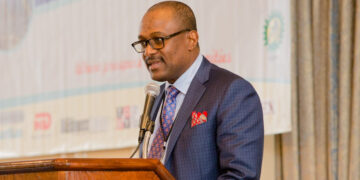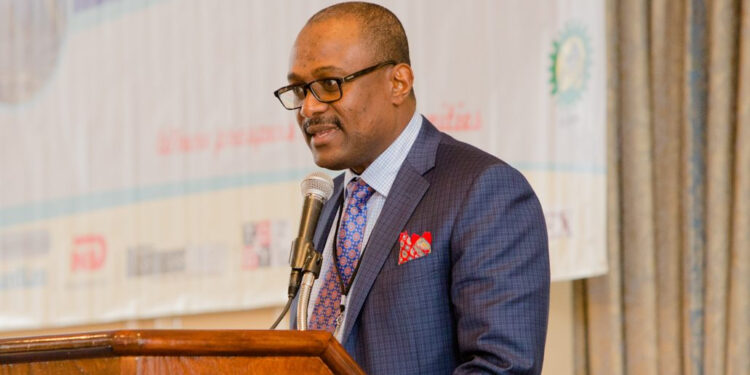By John Ikani
The Executive Secretary of the Nigerian Content Development and Monitoring Board (NCDMB), Engr. Simbi Kesiye Wabote has disclosed that four major projects being developed by investors in partnership with the NCDMB would be completed before the end of 2021.
Wabote made the disclosure on Thursday at a one-day workshop with the theme “NCDMB Roadmap, A Catalyst for the Industrialization of Nigeria 2017-2027,” organised by the Reform Coordination and Service Improvement Department of the Ministry of Petroleum Resources.
The workshop was the first edition of enlightenment series conceived to educate personnel of the Nigerian Ministry of Petroleum Resources on the operations of agencies under the ministry.
Speaking at the event, Wabote said the four projects being developed by investors in partnership with the NCDMB include the Rungas facility in Polaku, Bayelsa State that would manufacture 400,000 units of Composite LPG Cylinders per annum and BUNORR production plant in Port Harcourt, Rivers State, which would produce 48,000 litres of base oil per day.
The other two projects include NEDO Gas’ 80 million standard cubic feet per day gas processing facility upgrade and expansion, plus 300 million standard cubic feet per day KGG manifold in Delta State, and DUPORT Midstream Ltd’s Energy Park, which comprises 2,500 barrels of crude oil per day modular refinery, 40 million standard cubic feet per day gas processing plant and 2 megawatts power plant.
The NCDMB boss further disclosed that five Liquified Petroleum Gas (LPG) storage/bottling plants and six LPG Depots being developed in partnership with Butane Energy Limited in 10 states in the North and Abuja would be completed in two phases – six in quarter 1 of 2022 and the rest in quarter 4 of 2022, with the opportunity to create 1,900 direct, indirect, and induced jobs.
While hinting that the board was partnering with the Lagos Deep Offshore Logistics Base (LADOL) to develop a 24 megawatts power plant at Takwa Bay, Lagos State, Wabote explained that the move would generate about 400 jobs as well as provide uninterrupted power supply to the free zone which hosts key facilities required to service the oil and gas industry.
Speaking further on NCDMB partnership investments, Wabote said they cut across modular refineries, LPG value chain, and other areas, adding that the Board had 23 project sites spread across Abuja, Bayelsa, Bauchi, Delta, Edo, Gombe and Imo State. Other locations include Jigawa, Kaduna, Katsina, Kano, Lagos, Nasarawa, Niger Plateau, Rivers, and Zamfara states.
He went on to explain that the NCDMB committed equity investments into strategic projects that align with Government’s policies with a view to catalysing them to success and would exit once those businesses become successful. The investments were also in line with the Board’s vision “to be a catalyst for the industrialization of the Nigerian oil and gas industry and its linkage sectors,” he added.
Wabote also highlighted the functions of NCDMB and the Nigerian Content 10-year Strategic Roadmap, revealing that the Board had recorded considerable progress with the implementation of the roadmap and had grown Nigerian Content from 26 percent to 35 percent within four years and was on track to achieve 70 percent by 2027.
The Executive Secretary further spoke on the US$350m Nigerian Content Intervention Fund, which provides affordable and accessible credit to qualified oil and gas companies, describing it as one of the most successful funding schemes in the country with 99 percent repayment rate by beneficiaries.
Delivering his remarks, the Permanent Secretary, Ministry of Petroleum Resources, Dr. Nasir Sani Gwarzo commended the NCDMB for its achievements, adding that the Board was on the right trajectory in implementing it mandate and impacting linkage sectors.
Gwarzo charged the Executive Secretary to remain committed to the same trajectory of deepening Local Content implementation for the benefit of the economy and Nigerians.
He also promised to deliver a report on the workshop to the Head of Service of the Federation and expressed hope that other ministries would inaugurate similar programmes and use them to build an informed and reformed civil service.



































